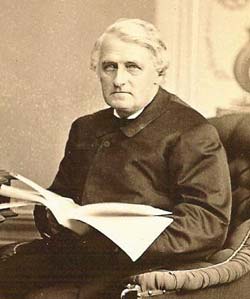A Quote by Hillary Clinton
In every religion, there are those who would drape themselves in the mantle of belief and faith only to distort it's most sacred teachings - preaching intolerance and resorting to violence.
Related Quotes
I do not think any religion encourages intolerance. Intolerance is the biggest mental defilement, and every religion tries to remove this defilement. So we must understand that whenever there is intolerance, this comes from an irreligious mind. It is not created by religion, and it is not in the mind of the religious person.
Here is the point about myself and my co-thinkers. Our belief is not a belief. Our principles are not a faith. We do not hold our convictions dogmatically. We believe with certainty that an ethical life can be lived without religion. And we know for a fact that the corollary holds true - that religion has caused innumerate people not just to conduct themselves no better than others, but to award themselves permission to behave in ways that would make a brothel-keeper or an ethnic cleanser raise an eyebrow.
Belief is in a sense passive, an agreement or acceptance only; faith is active and positive, embracing such reliance and confidence as will lead to works. Faith in Christ comprises belief in Him, combined with trust in Him. One cannot have faith without belief; yet he may believe and still lack faith. Faith is vivified, vitalized, living belief.
The Christian religion, then, is not an affair of preaching, or prating, or ranting, but of taking care of the bodies as well as the souls of people; not an affair of belief and of faith and of professions, but an affair of doing good, and especially to those who are in want; not an affair of fire and brimstone, but an affair of bacon and bread, beer and a bed.
There would be those of us who say that in many ways, you worry about what the Jews in Israel are doing to themselves. Yes, they may at the moment have incredible power and are supported almost unconditionally by especially America, but most of the West as well. Yet what they are doing is contrary to the best teaching and highest teachings of their faith.
The most intelligent hearers are those who enjoy most heartily the simplest preaching. It is not they who clamor for superlatively intellectual or aesthetic sermons. Daniel Webster used to complain of some of the preaching to which he listened. "In the house of God" he wanted to meditate "upon the simple varieties, and the undoubted facts of religion;" not upon mysteries and abstractions.
We cannot have faith without belief, but we can believe without having faith. Belief is the foundation of faith. Faith is trusting in our Lord and Savior, Jesus Christ. The scriptures contain many assurances of salvation to those who exercise faith and obey the commandments... Faith is the motivating force that impels action.
Until the content of a belief is made clear, the appeal to accept the belief on faith is beside the point, for one would not know what one has accepted. The request for the meaning of a religious belief is logically prior to the question of accepting that belief on faith or to the question of whether that belief constitutes knowledge.
A faith in culture is as bad as a faith in religion; both expressions imply a turning away from those very things which culture and religion are about. Culture as a collective name for certain very valuable activities is a permissible word; but culture hypostatized, set up on its own, made into a faith, a cause, a banner, a platform, is unendurable. For none of the activities in question cares a straw for that faith or cause. It is like a return to early Semitic religion where names themselves were regarded as powers.
I'm a writer of faith who worries about the intolerance of religion. I look at the past and fear we haven't learned from it. I believe that humanity is capable of evil as well as great acts of courage and goodness. I have hope. Deep down, I believe in the human spirit, although sometimes that belief is shaken.


































